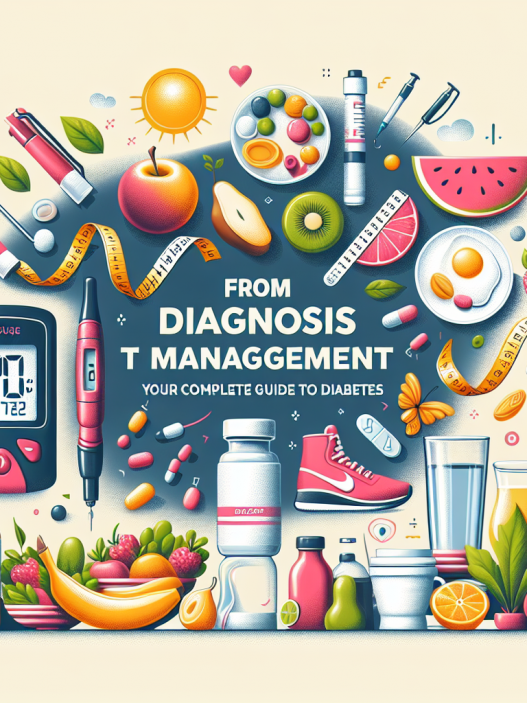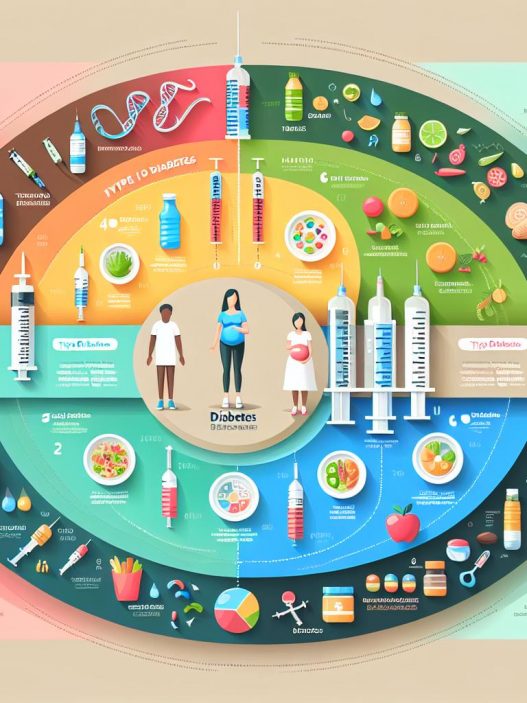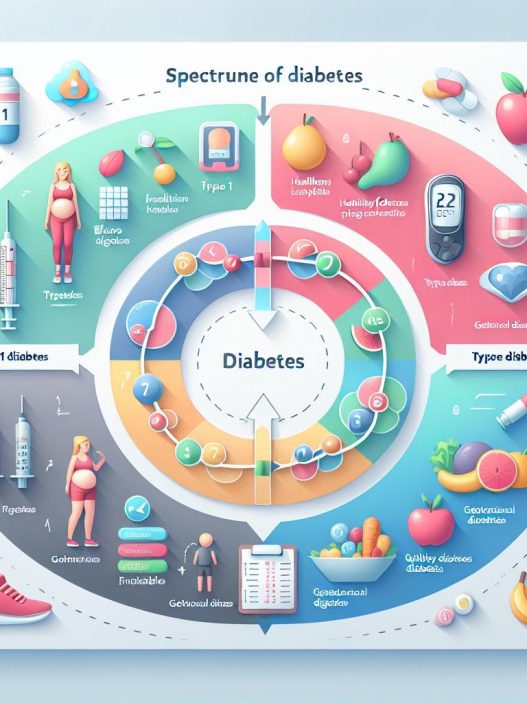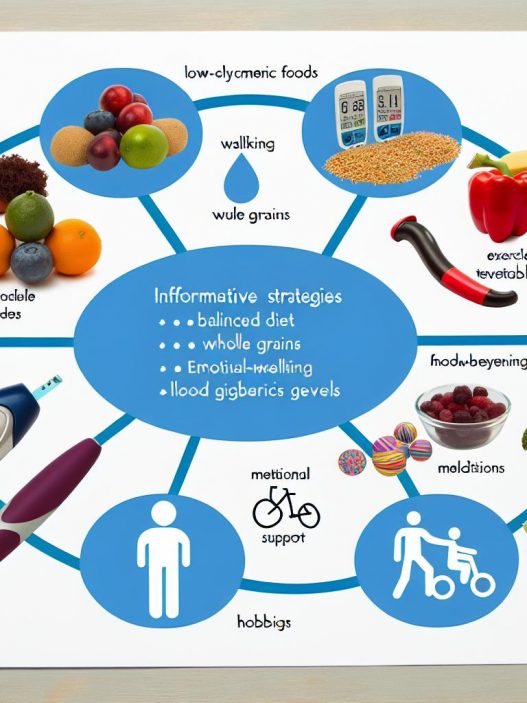[ad_1]
Living with diabetes can be a challenging journey, but it is also an opportunity to take charge of your health and wellness. By implementing effective management techniques, individuals can not only survive but thrive despite their condition. This comprehensive guide will provide you with essential tips for managing diabetes, focusing on nutrition, exercise, monitoring, emotional health, and support systems to help you lead a fulfilling life.
Navigating Nutrition: Essential Dietary Tips for Diabetics
Nutrition plays a pivotal role in managing diabetes. Understanding how different foods affect blood sugar levels is essential for anyone living with this condition. The cornerstone of a diabetic diet is balancing carbohydrates, protein, and fats to maintain stable blood glucose levels. A well-rounded diet can also help with overall wellbeing, reducing the risk of complications associated with diabetes.
When considering carbohydrates, it’s crucial to focus on the quality rather than just the quantity. Opt for whole grains such as quinoa, brown rice, and whole wheat bread instead of refined grains. These complex carbohydrates digest more slowly, leading to gradual increases in blood sugar levels. Additionally, including a variety of non-starchy vegetables can provide vital vitamins and minerals while keeping caloric intake low. Portion control is also significant; using measuring cups or scales can help you understand serving sizes better.
Beyond carbohydrates, protein should also be a focal point in your meals. Lean meats, fish, legumes, and low-fat dairy products serve as excellent protein sources that help manage hunger and maintain muscle mass. Fats are not the enemy; however, it’s essential to choose healthy fats like those found in avocados, nuts, and olive oil to promote heart health. Understanding how to create a balanced plate can go a long way in stabilizing your blood sugar and improving your overall health.
Exercise and Activity: Building a Routine to Enhance Wellbeing
Engaging in regular physical activity is essential for managing diabetes effectively. Exercise helps lower blood sugar levels and increases insulin sensitivity, allowing your body to use glucose more efficiently. Whether it’s through aerobics, strength training, or daily walks, incorporating various forms of physical activity can be both beneficial and enjoyable.
To maximize the benefits, aim for at least 150 minutes of moderate aerobic exercise each week. This could include brisk walking, cycling, swimming, or dancing. It’s important to choose activities you enjoy so that staying active feels less like a chore and more like a rewarding experience. Strength training, such as weight lifting or resistance exercises, is equally important and should be done at least twice a week to help maintain muscle mass and improve overall metabolic health.
Additionally, consider incorporating physical activity into your daily routine. Simple tasks such as taking the stairs instead of the elevator, parking farther away from your destination, or engaging in active hobbies can add up over time. It’s essential to listen to your body and consult with your healthcare provider when starting a new exercise program, especially if you have other health considerations.
Monitoring Blood Sugar: Understanding and Managing Your Levels
Monitoring blood sugar levels is a crucial aspect of living with diabetes, allowing you to make informed decisions regarding your diet, physical activity, and medication management. The frequency of monitoring will depend on the type of diabetes you have and your treatment plan. Regular checks can provide insights into how various foods, activities, and medications affect your blood sugar levels.
Understanding the different components of diabetes management, such as fasting blood sugar, postprandial levels (after eating), and HbA1c readings, can empower you to make better lifestyle choices. Fasting blood sugar levels should ideally be between 70-130 mg/dL before meals and less than 180 mg/dL two hours after eating. Keeping track of your blood sugar readings in a logbook or using diabetic management apps can also help you identify patterns and make necessary adjustments.
Always consult with your healthcare team to determine personal target ranges and optimal monitoring times. Continuous Glucose Monitoring (CGM) devices are another valuable tool that can provide real-time insights into blood sugar levels, helping make diabetes management more seamless.
Emotional Health: Coping Strategies for Diabetes Management
Emotional well-being is often overlooked in diabetes management, yet it plays a critical role in how individuals cope with their condition. The psychological burden of managing diabetes can lead to anxiety, depression, and burnout. Being mindful of your mental health is just as important as monitoring physical health.
One effective coping strategy is practicing mindfulness through meditation or yoga, which can reduce stress levels and improve emotional resilience. Additionally, engaging in hobbies or activities that bring joy can provide a much-needed respite from daily management tasks. Regular social interactions and relationships with supportive family or friends can alleviate feelings of isolation often associated with chronic conditions.
Furthermore, do not hesitate to seek professional help when needed. Therapists or counselors who specialize in chronic illness can provide valuable tools for coping with the emotional aspects of living with diabetes. Support groups, whether online or in person, can also offer community and understanding from others who share similar experiences.
Building a Support System: The Importance of Community and Professional Guidance
Establishing a robust support system is key to thriving with diabetes. Surrounding yourself with a network of family, friends, healthcare professionals, and fellow diabetics can provide emotional support, motivation, and practical advice. Sharing your experiences and challenges with understanding individuals can make living with diabetes less daunting.
Consider enrolling in diabetes education programs or workshops offered by local hospitals, clinics, or community centers. These programs not only focus on the medical aspects of diabetes but also give you a chance to meet others facing similar challenges. Peer support can motivate you to stay committed to your management routine and remind you that you are not alone in this journey.
Your healthcare team plays a pivotal role in building this support system. Regular check-ups with doctors, dietitians, and diabetes educators can help you stay informed about new strategies in diabetes care. Don’t hesitate to ask questions and discuss concerns; proactive communication with your healthcare team empowers you in taking your health into your own hands.
Conclusion: Flourishing With Diabetes
Living with diabetes may require adjustments, but it does not mean a diminished quality of life. By understanding dietary needs, incorporating regular physical activity, monitoring blood sugar levels, prioritizing emotional health, and cultivating a strong support system, individuals can effectively manage their condition and thrive. Embrace the journey, stay informed, and always remember that you have the power to lead a fulfilling, dynamic life despite your diagnosis.
This comprehensive guide on living with diabetes offers valuable insights and practical strategies that can significantly improve your quality of life. By embracing these tips, you can not only manage your condition effectively but also thrive, ensuring that diabetes is simply a part of your life, not the entirety of it.
[ad_2]






















